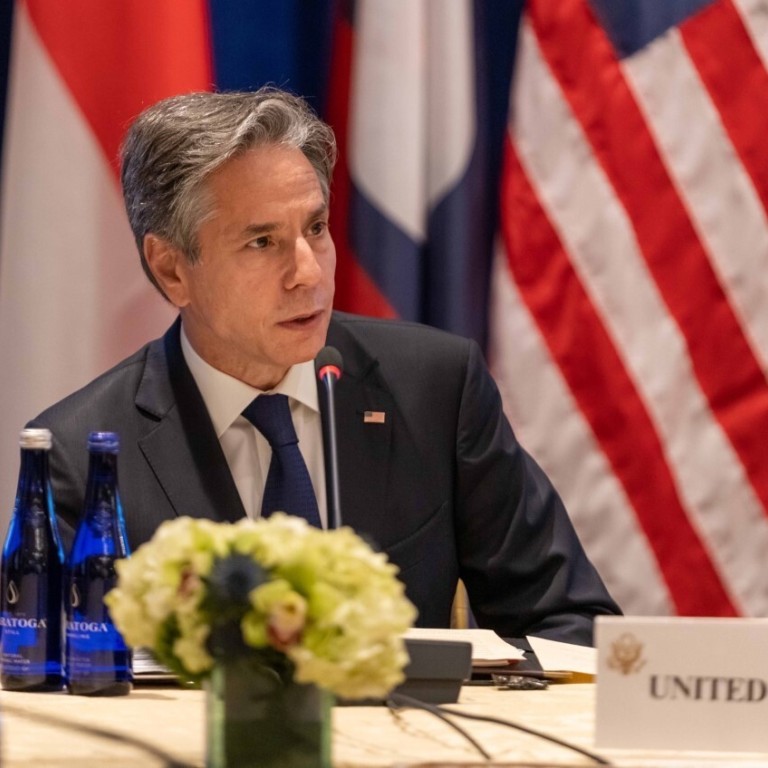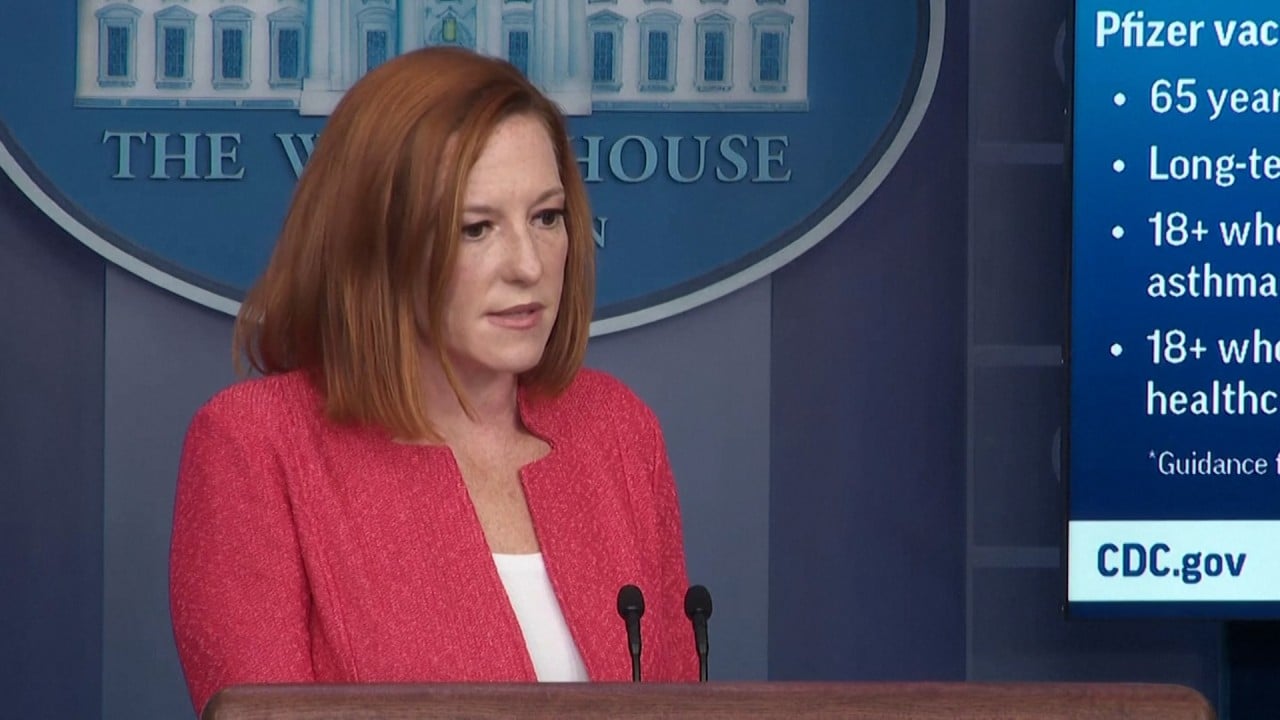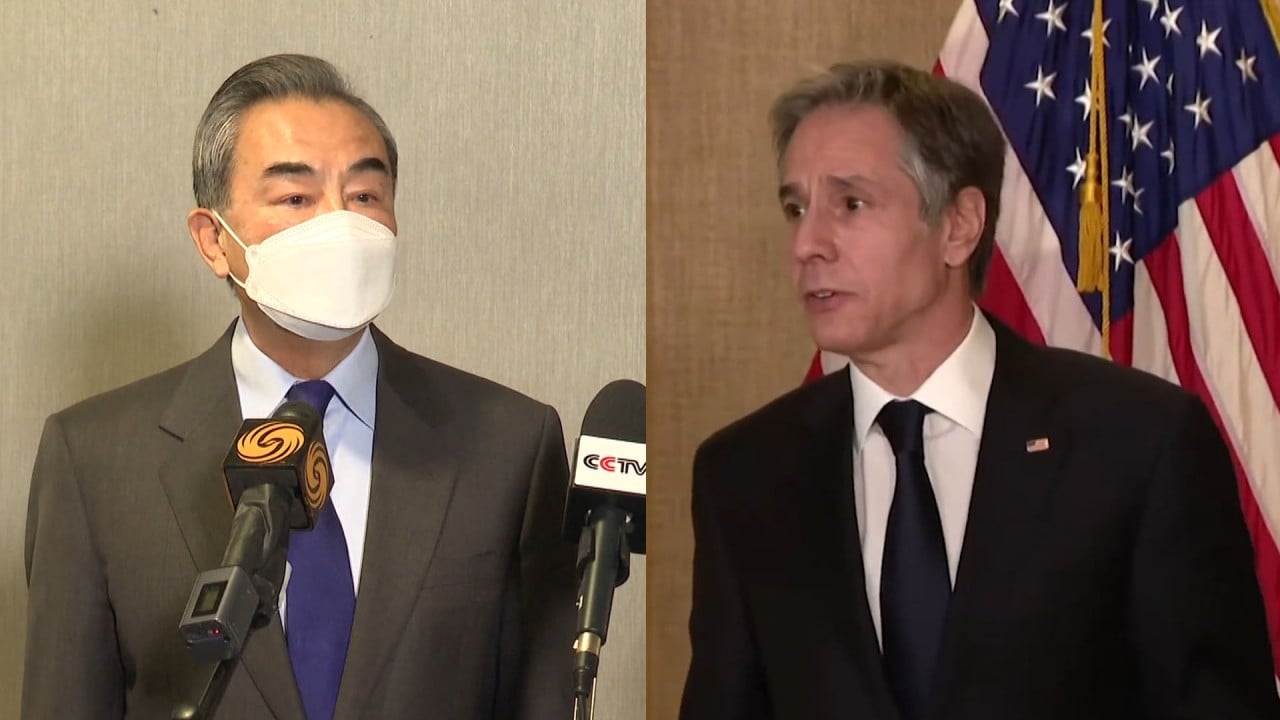
US’ National Day message to China has notable difference from last year’s
- Secretary of State Antony Blinken congratulates the country in wording subtly different from that used by predecessor Mike Pompeo
- It is a tradition for the US to send the greeting to China, but it could represent another show of goodwill in a week of conciliatory gestures
“On behalf of the United States of America, I would like to extend our congratulations to the people of the People’s Republic of China [PRC] as the country celebrates its National Day on October 1,” he said in the statement.
“As the United States seeks to work cooperatively to solve the challenges we all face, we wish the people of the PRC peace, happiness and prosperity over the coming year.”
In the message last October, then US secretary of state Mike Pompeo notably dropped “PRC” and said the congratulations were to “the people of China”.
“The United States wishes the people of China health, prosperity, happiness and peace in the coming year,” Pompeo said that time.
But competition between the countries has remained intense. The US and the European Union on Wednesday agreed to deepen transatlantic cooperation to strengthen semiconductor supply chains, while pledging to “work closely together to address non-market, trade-distortive policies and practices, improve the effectiveness of our respective domestic measures” – a veiled reference to China.

02:16
‘Our China policy has not changed,’ says White House after release of Huawei CFO Meng
Qin Gang, China’s envoy to the US, called on Tuesday for an accelerated joint effort to put relations back on track as soon as possible.
But it was too early to draw optimistic conclusions, Lu said, noting the recent mixed signals from the US officials, including Secretary of Commerce Gina Raimondo telling CNBC the US needed to work with the European Union to “slow down China’s rate of innovation” days after she told The Wall Street Journal she would seek to improve business ties with China.
“However, I think the US side has realised that a tense relationship with China could take bilateral ties further into uncharted waters,” Lu said.

04:07
Alaska summit: China tells US not to underestimate Beijing’s will to safeguard national dignity
US Trade Representative Katherine Tai is expected to make a speech on Monday about the Biden administration’s approach to trade with China.
Lu said the next three months could be the time for Beijing and Washington to break the ice, especially on economic and trade issues.
“If Blinken’s message is interpreted as an expression of goodwill, it could lead to some positive discussions by the end of the year, rather than more of acrimonious meetings this year in Alaska and Tianjin,” he said.

